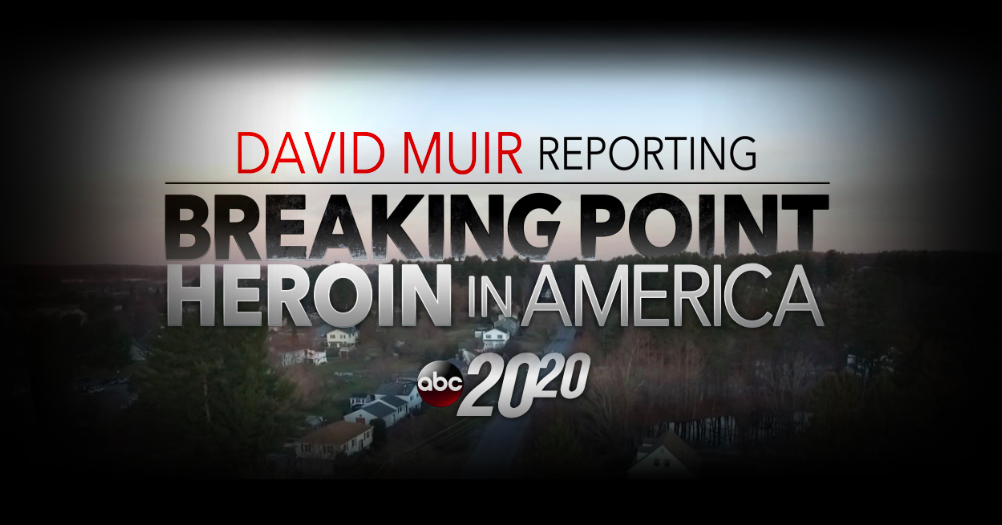
ABC will devote a prime time hour to the ongoing heroin epidemic in New Hampshire tonight in a special episode of 20/20.
David Muir, who anchors the episode, spoke exclusively to The Fix about what was involved in creating “Breaking Point: Heroin in America,” which follows a year of reporting in the state. The show follows several families who are struggling with heroin abuse in a variety of ways—a young mother who is dependent on the drug along with her newborn child; a couple in rehab who have vastly different reactions to their time in treatment. Muir follows an emergency patrol team that rescues a heroin user slumped over the wheel of his car, and visits a middle school in Manchester where students are taught to administer Narcan.
“When you realize that nearly everyone you meet has been touched by the drug in some way, that’s really eye-opening,” said Muir in a story posted by ABC News. “It helps begin a conversation out there, and the more we can be part of the conversation, the better.”
It’s a pressing issue in New Hampshire, where more people die from heroin deaths than from traffic accidents, the Union Leader reported last April. In December, the number of opioid related deaths in New Hampshire was projected to set a record high in 2015. The state medical examiner reported 295 confirmed opioid-related deaths that year, but projected that number to reach 357 once suspected overdose cases are confirmed. Just over half of the confirmed deaths (183) involved fentanyl and at least one other substance, while 135 deaths were credited to using fentanyl by itself.
“There is no quality control at the heroin factory. They put anything in it they can and, as has been said before, fentanyl is very easy to make,” Christopher Stawasz, regional director for American Medical Response, told WMUR Manchester. “It’s synthetic, doesn’t need to be cultivated and they add that along with the heroin.”
In response to the opioid crisis both in New Hampshire and across the country, New Hampshire Sen. Jeanne Shaheen (D-NH) introduced The Opioid and Heroin Epidemic Emergency Supplemental Appropriations Act last November, which would allot $600 million in emergency funding to combat the crisis. However, her effort to add the funding to the Comprehensive Addiction and Recovery Act (CARA) was blocked last week by Senate Republicans, who said that Congress had already allotted $400 million in funding for opioid abuse programs in a spending bill passed last December. Sen. Shaheen later expressed her disappointment, declaring that “there is simply no excuse for Congress providing emergency funding for the Ebola and swine flu epidemics, while ignoring an opioid crisis that’s killing a person a day in the Granite State.”
Senators did vote this Monday to advance CARA by a margin of 86-3—the bill is designed to provide federal grants to states and local governments to address prescription painkiller abuse and heroin addiction across the U.S. However, it’s still unclear where the funding to administer these grants will come from. On Thursday, CARA was approved in a 94-1 vote in the Senate—a strong sign that the U.S. government now understands the gravity of this epidemic.
“Breaking Point: Heroin in America” airs today, March 11 at 10 p.m. EST on ABC.
